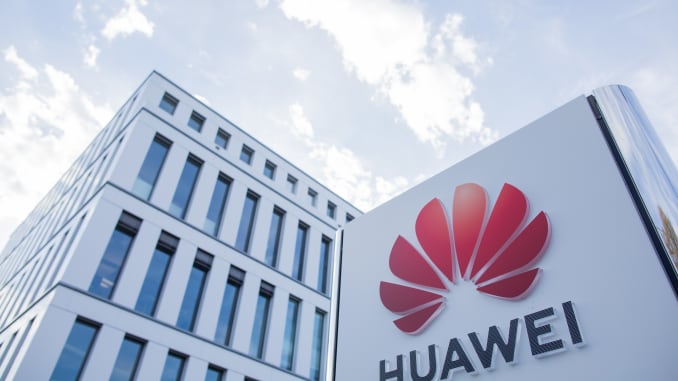FCC votes to bar China’s Huawei, ZTE from government subsidy program
- The ruling will not allow their U.S. rural carrier customers from tapping an $8.5 billion government fund to purchase equipment or services.
- This is the latest in a series of actions by the U.S. government aimed at barring American companies from purchasing Huawei and ZTE equipment.
- Huawei called the order “unlawful” and asked the FCC “to rethink its profoundly mistaken order.”
-
 View of the Huawei Germany headquarters. Despite political concerns, the Chinese telecommunications group Huawei will in future be able to play a major role in the expansion of the German 5G mobile communications network.Rolf Vennenbernd | picture alliance | Getty Images
View of the Huawei Germany headquarters. Despite political concerns, the Chinese telecommunications group Huawei will in future be able to play a major role in the expansion of the German 5G mobile communications network.Rolf Vennenbernd | picture alliance | Getty ImagesThe U.S. Federal Communications Commission (FCC) voted 5-0 Friday to designate China’s Huawei and ZTE as national security risks, barring their U.S. rural carrier customers from tapping an $8.5 billion government fund to purchase equipment or services.
The U.S. telecommunications regulator also voted to propose requiring those carriers to remove and replace equipment from Huawei Technologies Co Ltd and ZTE Corp from existing networks.
This is the latest in a series of actions by the U.S. government aimed at barring American companies from purchasing Huawei and ZTE equipment. Huawei and ZTE will have 30 days to contest the designation and a final order compelling removal of equipment is not expected until next year at the earliest.
Huawei called the order “unlawful” and asked the FCC “to rethink its profoundly mistaken order.” It argued the FCC’s decision was based “on nothing more than irrational speculation and innuendo.”
In May, Trump signed a long-awaited executive order declaring a national emergency and barring U.S. companies from using telecommunications equipment made by companies posing a national security risk. The Trump administration also added Huawei to its trade blacklist in May, citing national security concerns.




